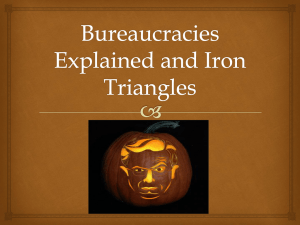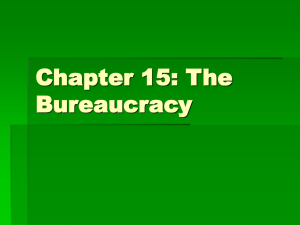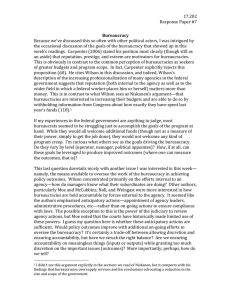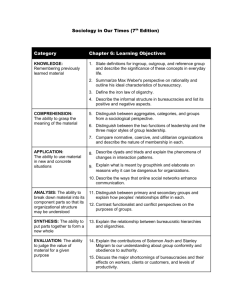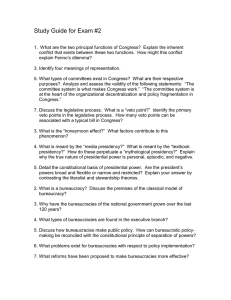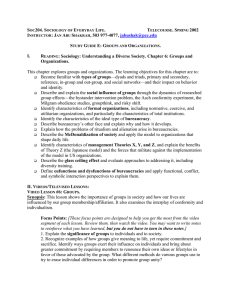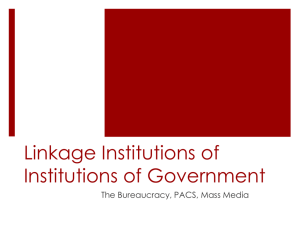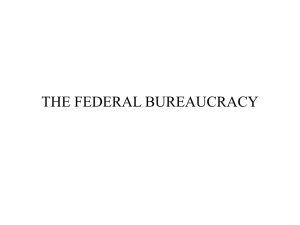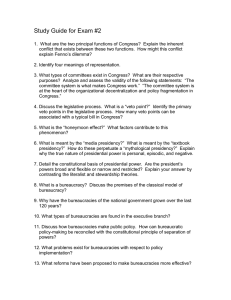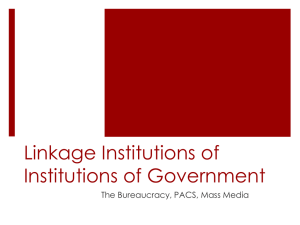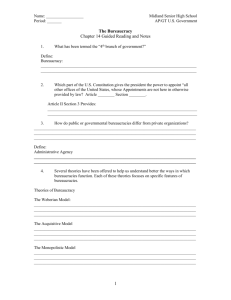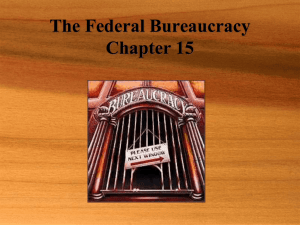ch 9 notes
advertisement
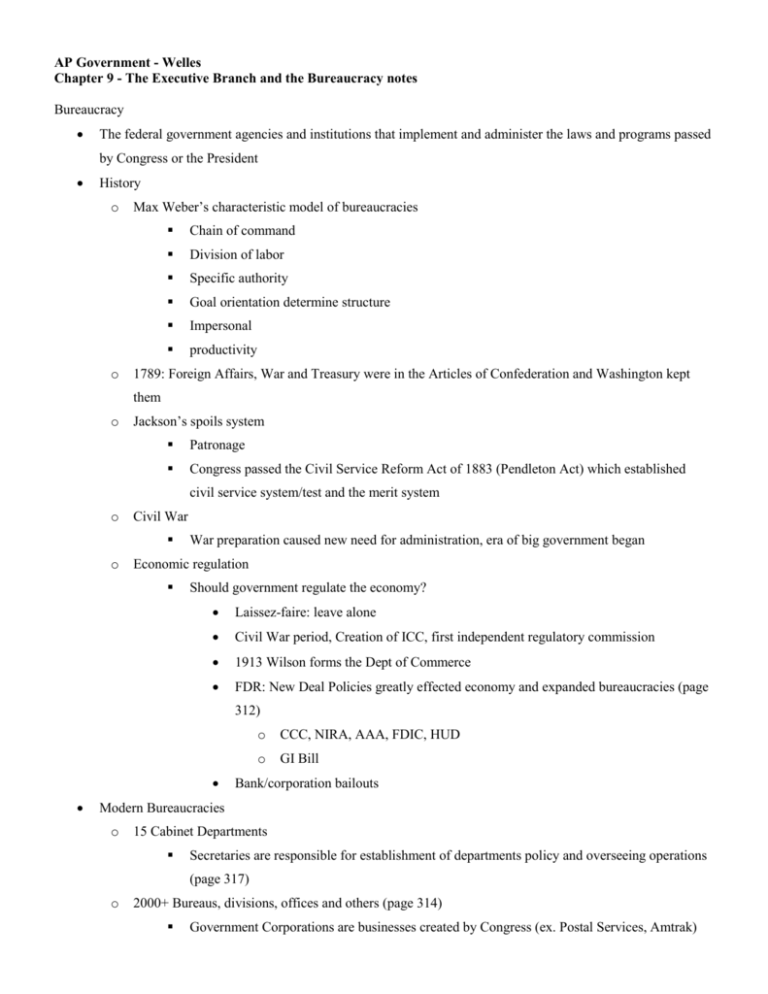
AP Government - Welles Chapter 9 - The Executive Branch and the Bureaucracy notes Bureaucracy The federal government agencies and institutions that implement and administer the laws and programs passed by Congress or the President History o o Max Weber’s characteristic model of bureaucracies Chain of command Division of labor Specific authority Goal orientation determine structure Impersonal productivity 1789: Foreign Affairs, War and Treasury were in the Articles of Confederation and Washington kept them o Jackson’s spoils system Patronage Congress passed the Civil Service Reform Act of 1883 (Pendleton Act) which established civil service system/test and the merit system o Civil War o War preparation caused new need for administration, era of big government began Economic regulation Should government regulate the economy? Laissez-faire: leave alone Civil War period, Creation of ICC, first independent regulatory commission 1913 Wilson forms the Dept of Commerce FDR: New Deal Policies greatly effected economy and expanded bureaucracies (page 312) o CCC, NIRA, AAA, FDIC, HUD o GI Bill Bank/corporation bailouts Modern Bureaucracies o 15 Cabinet Departments Secretaries are responsible for establishment of departments policy and overseeing operations (page 317) o 2000+ Bureaus, divisions, offices and others (page 314) Government Corporations are businesses created by Congress (ex. Postal Services, Amtrak) Independent Executive Agencies have narrow areas of responsibilities (NASA and CIA) Independent Regulatory Commissions regulate a specific activity or interest in the government (OSHA) o Outsourcing bureaucracies o Blackwater Policies of Bureaucracies Hatch Act: Government workers can not work on campaigns during government time Federal Employees Political Activities Act 1993 (page 321): spelled out acceptable campaign behavior Making Policy o Implementing laws o Iron Triangles: a form of issue network Bureaucratic Agency Congress o Administrative Discretion o Regulations: made by bureaucrats to govern the process Accountability o o o Executive Control Executive Orders Budget proposals Legislative Control Budgets Oversight functions Approval of appointments Judicial Control Judicial review Interest Groups
